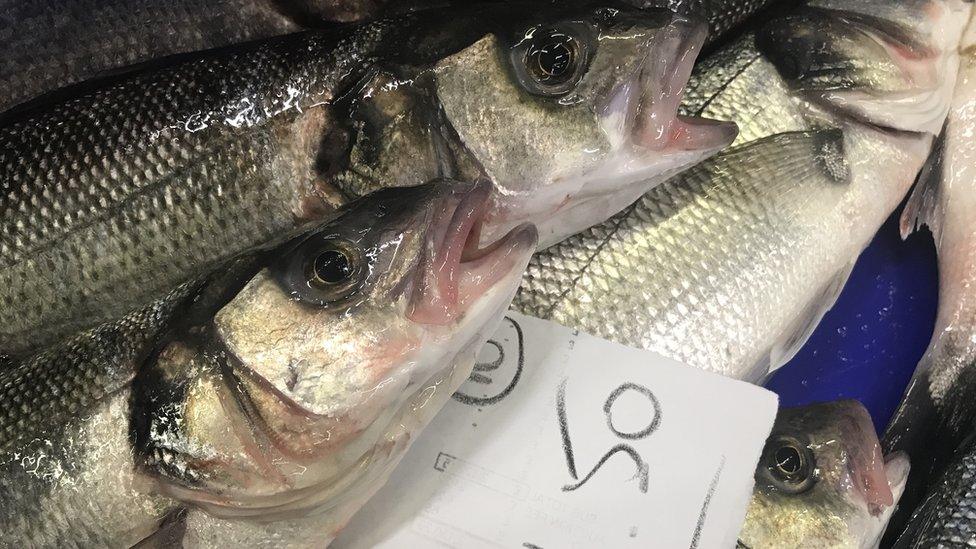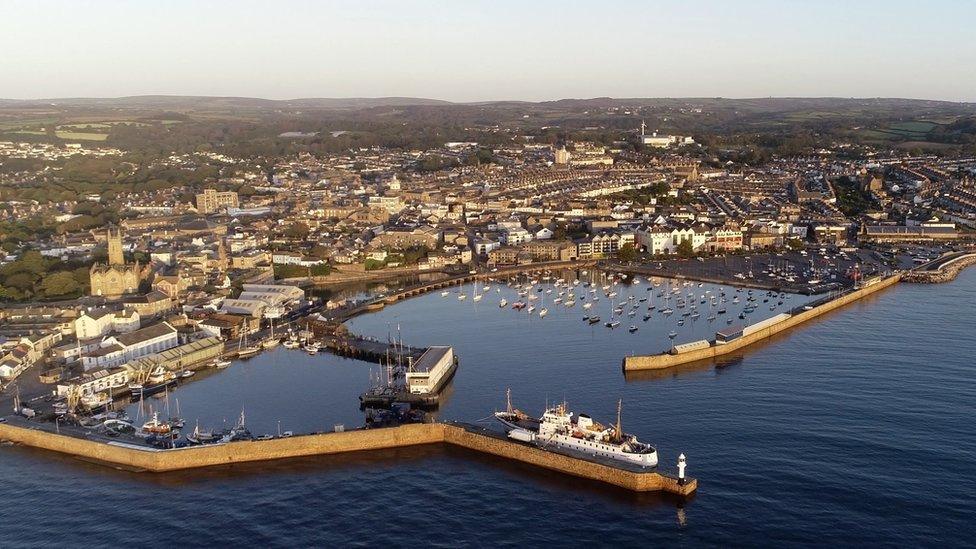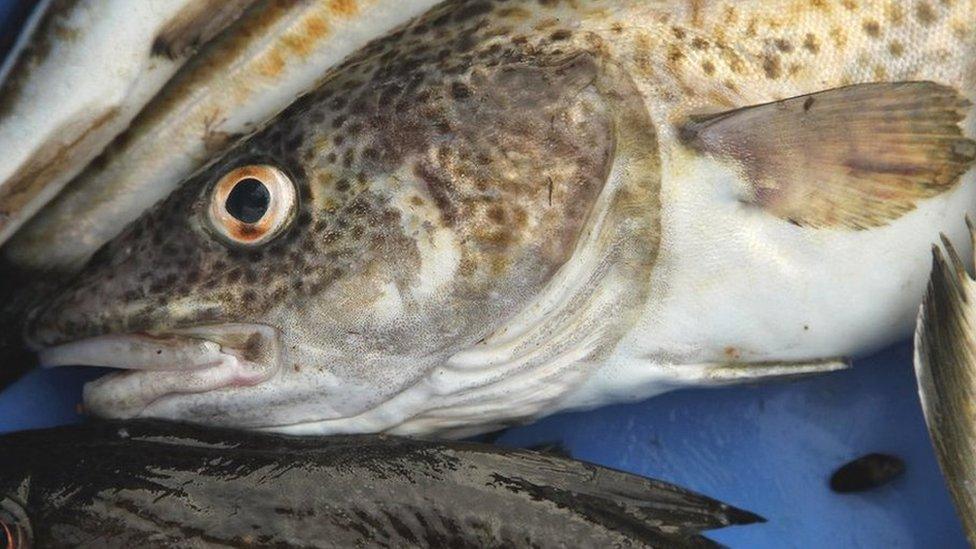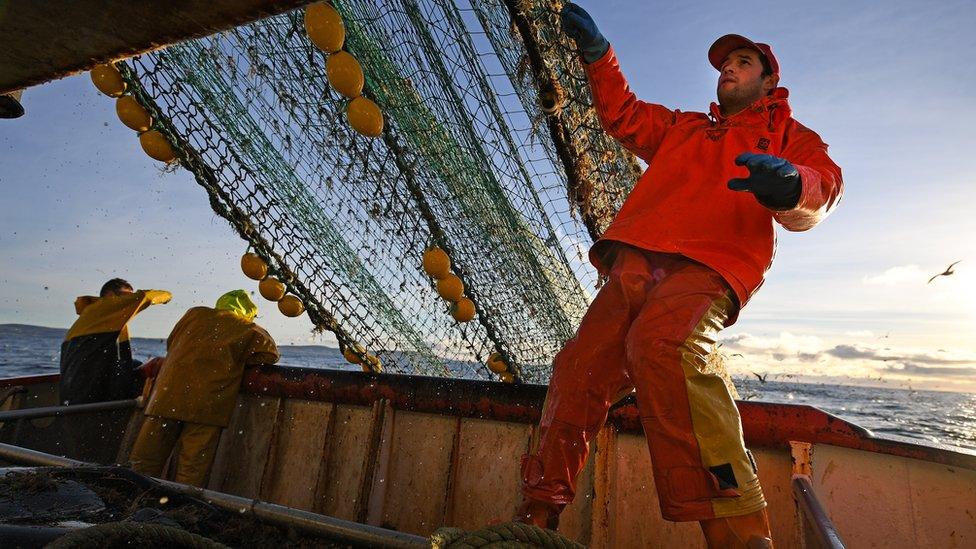East Anglia: Revived fishing industry 'could create 300 jobs'
- Published

REAF has laid out a strategy it believes could reinvigorate East Anglia's fishing industry
Investment in the regional fishing industry could create 300 jobs on and offshore, claims a new report.
The Renaissance of the East Anglia Fisheries (REAF) study is calling for investment on the coast of Norfolk and Suffolk.
It said government seed funding could attract further private-sector cash.
Defra said it was working closely with the industry and had invested millions to ensure the seafood industry thrived.
The campaign, chaired by Waveney MP Peter Aldous, involves Norfolk and Suffolk county councils, the local fishing industry, New Anglia Local Enterprise Partnership and Associated British Ports.
The report, says REAF, is "a once-in-a-generation chance to revitalise hard-pressed coastal communities, reversing decades of decline and adding in excess of £32m to the economy of the region".
'Proud history'
It said there were opportunities for growth "under both Brexit and non-Brexit scenarios".
Among its recommendations are investment in Lowestoft as a regional port; forcing boats to land their catch in the UK; and building a pontoon at Felixstowe.
It believes that could lead to the creation of 300 jobs and at least 25 vessels being added to the UK's fleet in the southern North Sea.
The campaign claims leaving the EU's Common Fisheries Policy could mean a seven-fold increase in the value of quota fish stocks caught by UK vessels in the southern North Sea.
Mr Aldous said: "We are looking to get on with this straight away, and we need seedcorn money from government so that the whole initiative can move forward."
Campaigners say the industry is at "a moment of great potential and great threat", and that decisions must be taken to avoid the "agonising risk of losing a culture and proud history of both commercial and small-scale artisanal fishing".
In a statement, Defra said it had provided £37.2m in new funding to help the industry, had opened a £10m fund to "drive innovation" and confirmed there would be funding for four domestic grant schemes from 2021.
- Published9 October 2019

- Published25 September 2019

- Published10 August 2019
